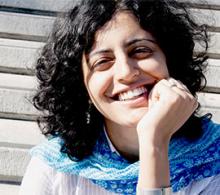Bio
Neha Kumar is an Assistant Professor at Georgia Tech, with a joint appointment in the Sam Nunn School of International Affairs and the School of Interactive Computing. She got her Ph.D. from the School of Information at UC Berkeley in December 2013, where she was advised by Prof. Tapan Parikh. Her dissertation research examined new media practices of youth from socioeconomically disadvantaged backgrounds in India, with a view to highlight the innovation and agency of these lead technology adopters as they appropriate the mobile phone to create informal learning environments for themselves. Neha also served as a postdoctoral researcher at the University of Washington's Computer Science & Engineering department from 2013 to 2014, where she worked with Profs. Richard Anderson, Gaetano Borriello, and Beth Kolko. From 2014 to 2015, she was a postdoctoral fellow at the Annenberg School of Communication at the University of Southern California, before joining Georgia Tech in Fall 2015.
Neha's research lies in the overlap of the Human-Computer Interaction (HCI) and the Information and Communication Technology and Development (ICTD) spaces. She uses her background in computer science, design, and ethnography to study emerging technology practices of marginalized users in resource-challenged communities and to leverage this understanding towards the design and deployment of appropriate technology- and process-based solutions. Neha's work contributes towards scholarship on mobile, social, and visual media practices and applies this research to design appropriate and contextually-relevant mHealth and education interventions for marginalized communities, mainly in South Asia.
Neha also works towards wider adoption of the research solutions that she designs. She has co-founded a non-profit mHealth start-up, which targets concerns regarding children's health - early detection of growth, development, and immunization issues - in the Indian context. This idea won first prize at a health hackathon organized by CAMTech and held at GE Research in Bangalore, in July 2014. It also won an Innovation Award from CAMTech in early 2015.

